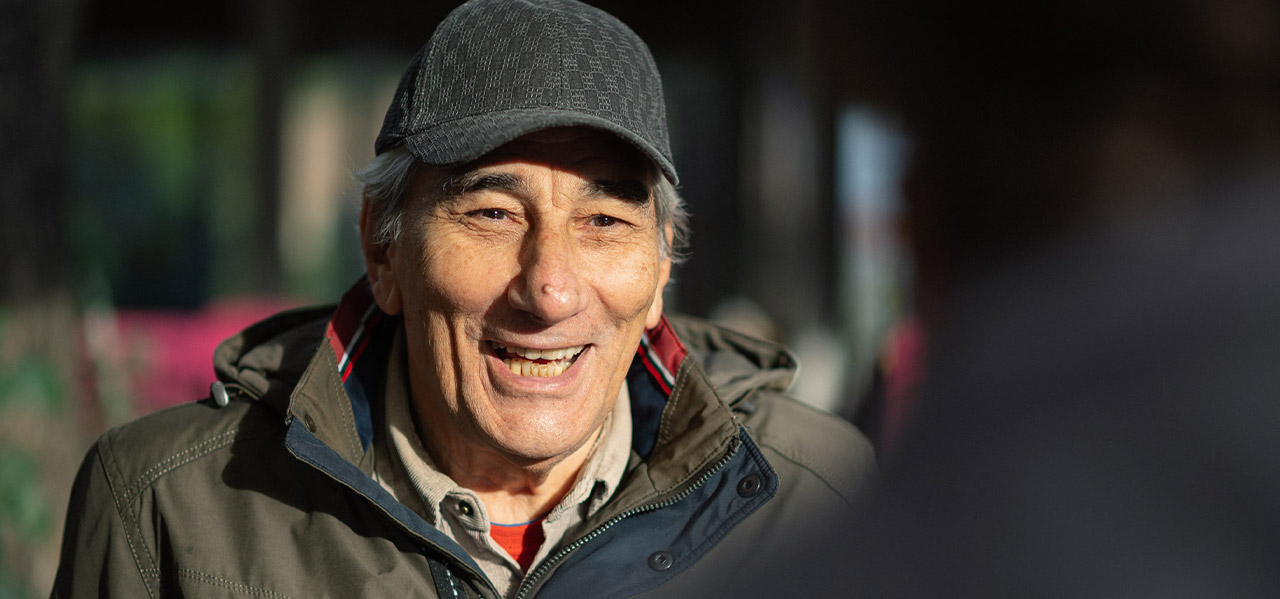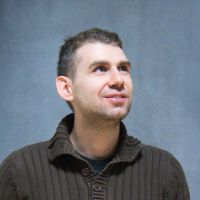Jovan Jova Radovanovic: the Jazz artist from Cvetkova marketplace
From a little boy with a flute who wandered the post-war Belgrade barefoot, to one of the most renowned showmen ever to grace the European stages. Jovan Jova Radovanovic drew smiles with his music and humor and his name became synonymous with good entertainment. In his interview for 011info, Jova speaks about his growing up, how he conquered national and international scenes and how he earned the life work award granted to him by the Nisville Jazz Festival.
How do you remember your childhood?
I came to this world during the peak of WWII, in 1941 in Zvezdara. More precisely near Cvetkova marketplace, located in the outskirts of the city. Back then, life was hard in those post-war years. Those who felt it on their own skin understand what it was like. Still, despite the poverty, I have fond memories of my childhood.
I always said I came to this world a bit tardy - probably due to a shortage in anti-baby pills! Namely, I had two brothers and a sister. They’re all considerably older than me - by 10, 12 and 15 years and they left home early so I really grew up as an only child.
I remember those years of growing up in the streets. My friends and I were always out in the street. Everything I experienced, I experienced outside. This changed when we started school, but until then it was life on the street and nowhere else.
As kids, we would criss-cross the capital city through and through. That is the best way to get to know the city. I applied that recipe later in life too, when I had guest appearances in various European metropoli. There’s no better way to really get a sense of a city and the people who live there.
For example, we’d go to the Red cross all the time to visit the Avala cinema. There were massive waiting lines and a craze for tickets. We’d often encounter Gaga Nikolic and Bata Zivojinovic who lovingly nicknamed us ‘bumpkins’ because we’d come over barefoot even though we lived only three trolley stops away.
We would also walk to Vidin gate where we’d listen to stories from various theatre actors and later retold them among ourselves.
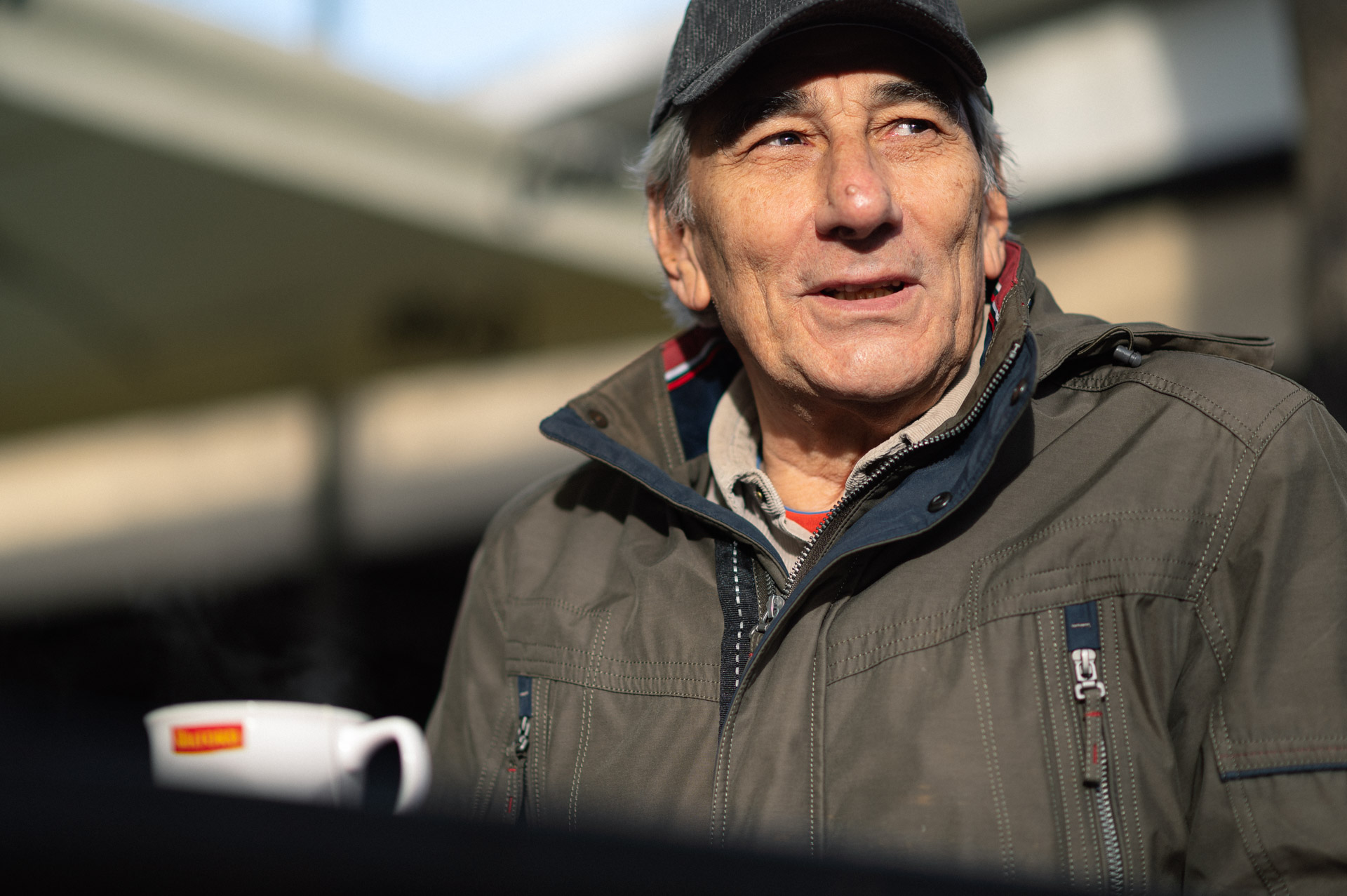 Photo: Vojislav Vujanic
Photo: Vojislav Vujanic
Were your parents very strict?
I remember one day I was playing marbles with my friend. My father was supposed to be home from work in the afternoon so I was engrossed in my game. But as I was so involved with my game and unaware of what was happening, I just suddenly felt someone scuff me on the head. I turn around and it’s my father, back from work early. I gave him this shocked look because I didn’t know what I did wrong. My father just said “Professor Milovanovic went by and you didn’t even greet him”. So in our home the main rule was to respect our elders and that it’s polite to greet our neighbors, while being kind and respectful to others was something that went without saying.
On the other hand, my father was a craftsman and he always used to say “Let me put bread in your hands and then you can do whatever you want.” By that, he meant I had to pick up and learn a trade. While I studied repairs, I also attended music school. I had practice every day. It was hellish trying to keep up with everything.
Although I never worked in my trade, I’m still grateful to my father for that. It came in handy in life. Whenever something broke down around the house, I could always fix it myself. You know, when you do something with your own hands, you feel happier and more satisfied. The late Dusko Radovic said it best - “You can finish any school you want, but your trade will always stick by you”. And when you think about it, it’s completely true.
By the way, I also remember the first day of music school. I came to class in short pants and they sent me back home before I set foot inside. “You can’t enter the temple of music dressed like that!” is what they said.
When did you fall in love with music?
Even before I started junior school, just chasing that rag-stuffed ball wasn’t enough for me, so I developed an interest in music. Love for music runs in my family - my brothers and father also played instruments and one of my brothers even had the absolute pitch.
It all really started with a wedding. Namely, a bride and groom pair were parading down our street, live music was booming and all the kids came out to watch. Back then, it was a joyous occasion for everyone. It tickled my fancy, so I turned and told my friends that if I had an instrument, I felt like I could just start playing the song that the band was playing at the moment.
All the other kids started teasing me how I was speaking nonsense and in order to prove me wrong, someone rushed to the local marketplace and brought a flute. I took it, played a little to get to know the instrument and then I immediately started playing “Poleti soko nisko, pa visoko”! Everyone were amazed. They were sure I practiced before hand, when actually that was the first time I held a flute in my hands.
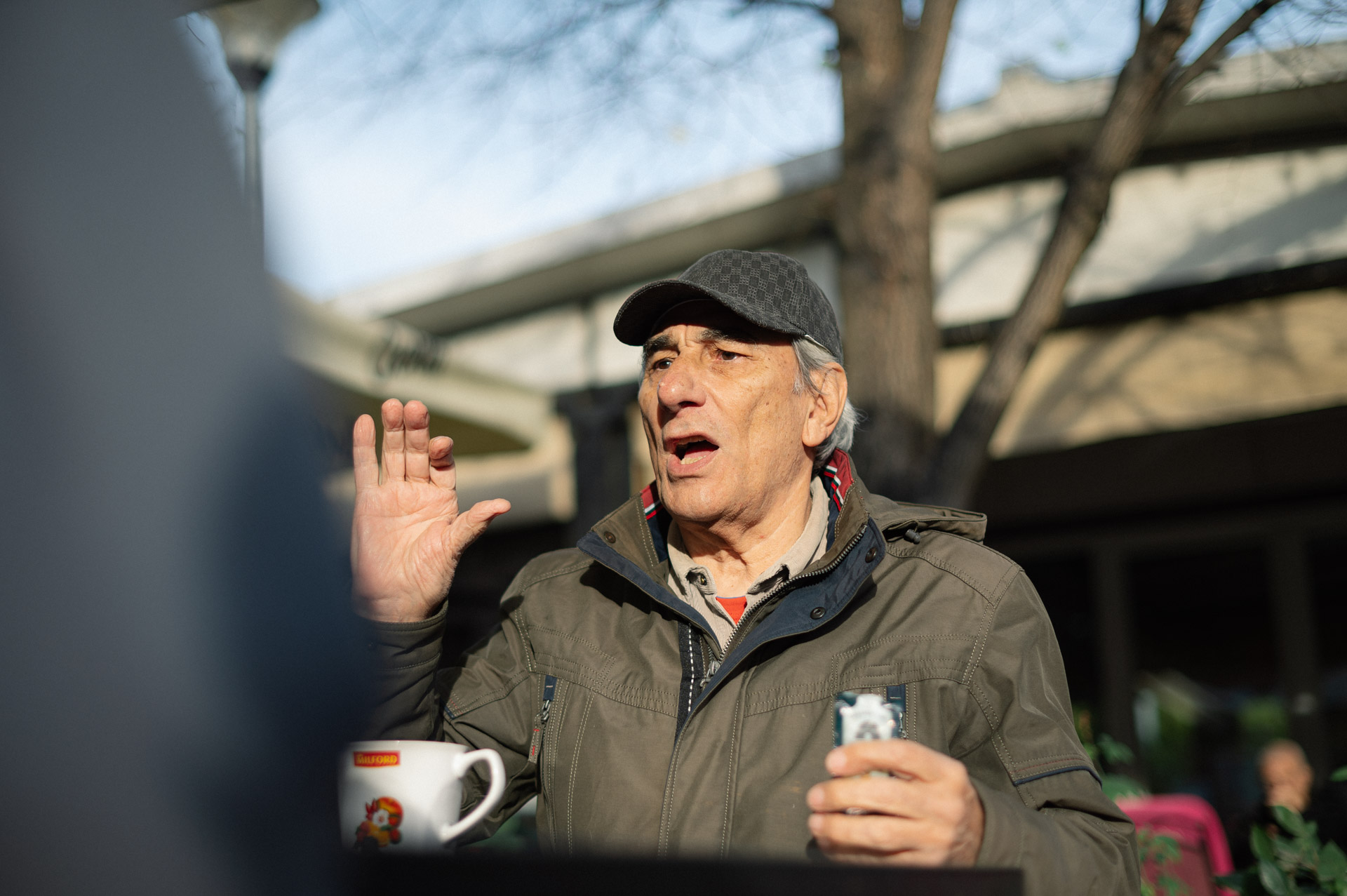 Photo: Vojislav Vujanic
Photo: Vojislav Vujanic
That flute quickly led to jazz music
It didn’t take me long to decide what kind of music I wanted to play. I knew right from the start that folk music wasn’t for me. I liked jazz, which I listened to a lot of on radio Luxembourg, thanks to my brother. Back then, radios were extremely expensive so he collected all the parts he needed and built one himself. It took him a month, but when he was finished I was over the moon. That’s how my obsession with music began.
My first music ensemble was called Domino. We played in the foyer of the Faculty of Technology. They held famous dance parties there. The whole city would flock over, even the ‘badboys’. Believe it or not, we had those back then too. But they never bothered us. Moreover, we were protected from all sides, even when different groups were in conflict between themselves. They probably appreciated what we did.
After Domino, I joined “Veseli bendzo” (Cheery Banjo). We played accompanying Miki Jevremovic who was a really big star back then. That’s where we got our first taste of fame, playing the song “Marina”. That performance was actually a turning point in my life. Namely, it had occurred to me that the trumpet players could, instead of just playing a certain segment, also have a choreography of their own so that we would take turns squatting and rising. The audience loved it. I then realized that it never hurt to entertain the audience visually too, in addition to musically.
You put that realization to work with “Sedmorica mladih”
It’s always been my urge to make people around me laugh, ever since I was a kid. I developed that with “Sedmorica mladih”. The principle of working with that ensemble was much different from other bands. They had a leader who would write the arrangement and manage everything. We mostly managed our own performances with everyone contributing in some way. Of course we discussed things and sometimes it grew into arguments, but it was always in the service of quality. Everyone from the side thought we wouldn’t last three days like that, but we proved them wrong. If I’m being honest, it was difficult and hard but very rewarding and fruitful. I think that was the secret of success for “Sedmorica mladih”.
We knew that if we wanted to achieve success, we had to work hard for it. In order to work even harder, we had to appreciate ourselves much more. And in order to appreciate ourselves, we had to be punctual in rehearsals. Tardiness wasn’t tolerated. If you didn’t show up on time, it didn’t matter if you came two, three, five or ten minutes late - you didn’t have a gig that month. That was a rigorous rule that applied to everyone in the group. I paid for it once and never came late again.
 Photo: Vojislav Vujanic
Photo: Vojislav Vujanic
The group quickly became enormously popular, so that they even ventured outside the borders of former Yugoslavia.
Only two or three months after I joined, in 1964, we started performing abroad. We went planning for a year and we stayed for 15 years. We wanted to realize our own potential because our own country was a Communist state and there was a certain barrier towards anything coming from it.
I remember after one of our performances in Germany, their press wrote about us “Orchestra from behind the iron curtain delights the masses”. And we were bothered by that. Then we met with those journalists and asked them what they thought of our performance. They loved it. Well, that’s great - if that’s the case, could you not mention the ‘iron curtain’ when you write about us in the future? They agreed and explained that they had to write that way because of their editor, but in the future they’d only write about our performance without involving politics.
Our performances in Munich were attended by American soldiers from nearby bases and they were blown away by us. They called us to visit them in their base so they could host us. We went. They welcomed us beautifully and while we were talking, my friend who played the trombone pulls out a picture of his brother Zivan Milic who was very popular in our country. But it was a picture from the army so the American soldier who took it to have a look just immediately dropped it and said “Enemy”. That’s how deeply the prejudice ran, and they didn’t even know where Yugoslavia was. We tried to explain but in the end they just kept asking if it was to the right or the left of their garrison.
In addition to Europe, you had a lot of success in the Soviet Union.
They had an incredible appreciation for what we did. It was a closed country. Everything was strictly controlled, even our repertoire at first. We had to explain in advance what every song meant. For example, we were forbidden from playing African-American spiritual songs. “It sounds too Western”, they’d say to us. But after we explained what the songs were, that they spoke of freedom and against slavery, they understood and approved them. In time, we gained their trust to the point where they didn’t even check us anymore, they just let us play whatever we wanted.
Even later, when the Soviet Union fell apart and Russia turned a new leaf and could bring in anyone, they still kept inviting us. So, we have a lot of fond memories from there.
In Russia, we had at least one concert per day, sometimes up to three. That’s why I always had two outfits with me, because after the first performance I’d be soaking wet. Then I’d change clothes, leave the other outfit to dry and so it went.
Bottom line, we spent three and a half years in the Soviet Union. The tours would last from two to seven months and during one of the breaks in between my son was born. I got to see him for two or three days and then had to leave for a nine month tour. In the meanwhile, his mother showed him pictures of me. When I got back, he was pointing a little finger at me yelling ‘daddy, daddy’, but he kept backing away from me. I teared up back then. I still feel sadness remembering that moment to this day.
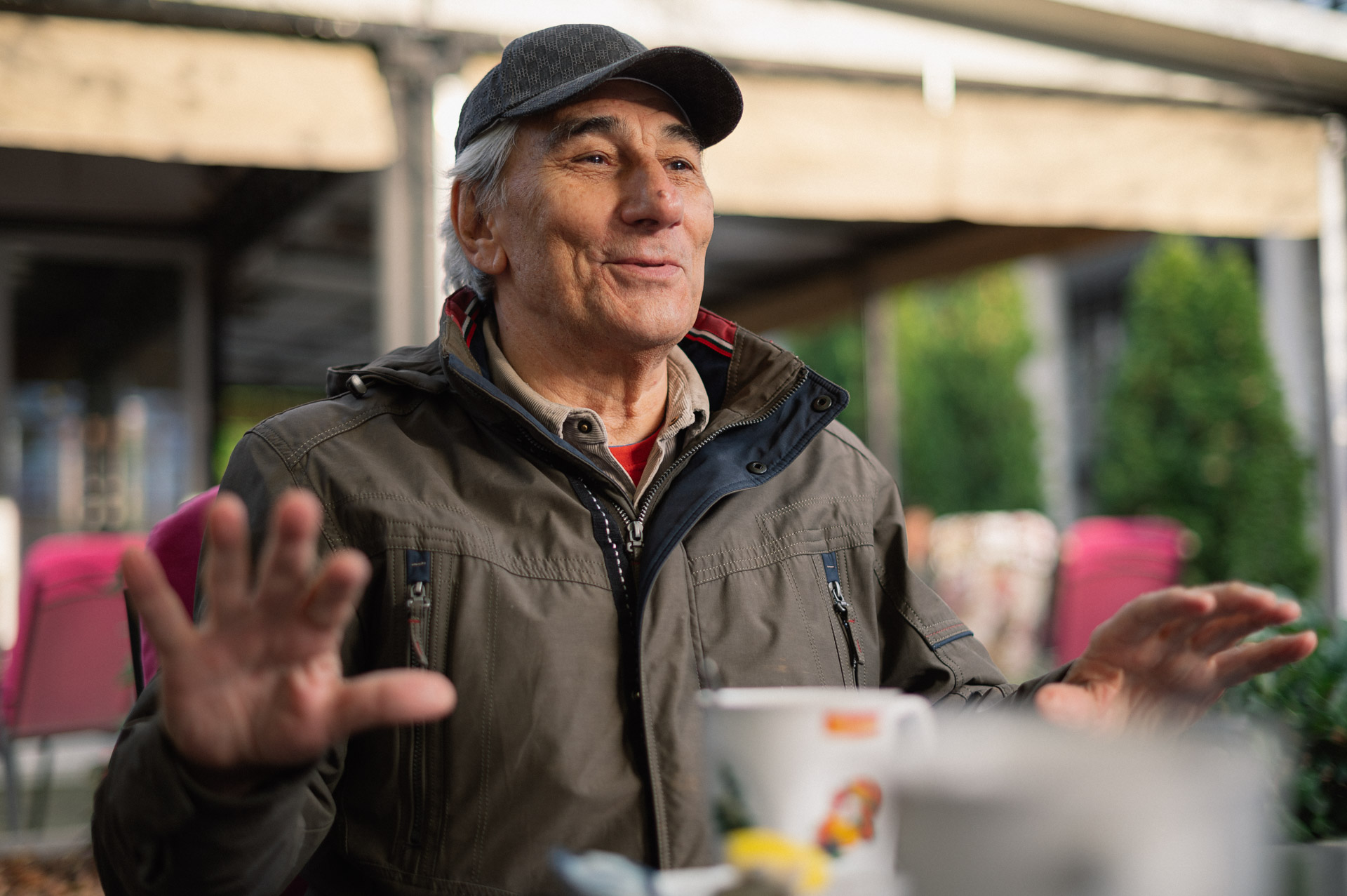 Photo: Vojislav Vujanic
Photo: Vojislav Vujanic
Was there a gap between us and the Soviets back then?
Yes, an immense one. For example, there was this engineer who never missed any of our performances. We got to talking once, right before we went home and I said how I couldn’t wait to see my son and relax a little, take my car for a spin around Belgrade which I loved doing because it calmed me.
He asks me ‘What do you mean a spin?’ and I say ‘In my car’.
‘You mean to tell me you have a car?’
He just wouldn’t believe me that I owned a car because back then, 40 or so years ago, in their country the rule was that no matter how wealthy you are - in order to buy a car you had to register and then be monitored for 10 years before they let you own one.
We were a Communist country too, but it was different. Hungarians came to our country to buy cocoa. There were lines down the entire Knez Mihailova street.
“Sedmorica mladih” were also very popular with Josip Broz Tito himself.
We held our first performance for Tito in the year 60-something. I’m not sure of the exact year, but after that first performance we got the invitation for the second, then third and so on. Soon, we became Tito’s favorites and no single party - diplomatic or otherwise - could go by without us. It’s important to state that none of us were members of the Communist Party. So his cabinet still appreciated skill over status.
By the end of the 60’s, we were invited to travel the world with Tito via “Galeb”. At that point we were already contractually obligated with various venues around the world. So, we answered that we would love to attend if he could extend his influence to move our arrangements or annul our contract. A week or so later, the reply came “You just keep doing your work. You’re doing incredibly good work. You are representing Yugoslavia in the best possible way.”
It is that good reputation we earned abroad that we can thank for being excused from serving in the military. We all got our military call while we were abroad.
However our consul in Germany told us that he’d send a letter and to call him in a week. That letter went to Tito and the Marshall personally amended that we be excused from serving in the military, seeing how we are more useful to our country on stage than in training.
 Photo: Vojislav Vujanic
Photo: Vojislav Vujanic
In addition to your musical career, you also have something of an acting career straight from the golden age of Atelier 212.
Yes, this was a play adapted from a work by Bulgakov. The excellent acting crew who did that piece featured names such as Zoran Radmilovic, Bora Todorovic and Mira Banjac. I got to appear in the play thanks to the personal initiative of the famous director Sasa Petrovic. He was very well familiar with my work and invited me to tryouts.
At first I was all tied up in knots, but Sasa told me to relax and after some time I did. When you find the right thread, you just keep pulling on it. It’s a shame I didn’t have more time there. I was pulled away by my responsibilities towards the ensemble. But that year and a half was a wonderful experience. Not just on stage but behind the scenes too. It was an unforgettable experience with those people. A true family. I didn’t come to that stage for the fee, that went towards children in need. I just came to charge my batteries.
And to visit the famous “bife”
By the way, that “Atelier” had the immensely famous ‘bife’. Since it was a tiny establishment, Ljuba Moljac and Baja Bacic declared it a ‘malignant bife’. Everyone knew each other’s usual orders there. Pera Kralj took brandy, Gaga Nikolic liked whiskey. I’ve known Gaga from childhood by the way. He was from the Cross, two stops away from me. We were in college together and acted together. But I didn’t go to the ‘bife’ for the drinks, but for the people. I experienced all I ever dreamed - to be around such amazing people and learn from them.
I remember when I was returning with Ljuba Moljac at five AM from a performance and we run into Pavlo Vujisic in a tavern who invites us to sit with him. Exhausted as we were, we had no choice. We sit and Paja says “Ljubo, do you remember back in the day when you and I ate a whole lamb”. And Ljuba says “What do you mean you and I when I just took a slice and you ate everything else”.
Great people.
 Photo: Vojislav Vujanic
Photo: Vojislav Vujanic
“Sedmorica mladih” stopped working in the 90’s. That’s when you turned to a different kind of entertainment program.
When the ensemble stopped working, I kept going for a while. I just couldn’t go without it. But considering the situation - the bombing and all those struggles of that time, nobody was in the mood to celebrate anything. I was very depressed about it because I felt that I still had more to give.
When we went back to normal life, I got a call from Zoran Predic from “YU-info” who pitched me a show he had in mind. The main obstacle was funding. There wasn’t a dime for it. Nobody wanted to join me on this project because they’d have to work for free, so I had to do everything. Dejan Patakovic wrote the several minute long bits and the idea was that I would play out the dialogue with myself.
Zeljko Mitrovic was delighted by the idea and wanted to work with us on it. At first nothing was done because of the finances, but once we got a budget I did the show “Povuci rucnu” for three years or so. With very little money invested that show brought in huge ratings.
There’s never enough programs of that kind.
But the biggest compliment to my comedy I got from the legendary Mija Aleksic. We worked on a bit where I was acting out a drunkard. Mija then said “The rest of us are acting but this one is for real!”.
You recently got an award for life work.
Yes, that came from an unexpected source - the jazz community. Namely the jazz festival in Nis. They noticed that not one of our performances ever went by without a few jazz numbers. The ensemble got an award for improvised jazz and I got a life work award.
On that very day my neighbor, the actor Boda Ninkovic, called me and said he’s coming over for coffee. I say “Wait, I’m not home - I’m in Nis getting an award for my life work”. To which he replies “Oh, well that’s no good”.
As long as we have that kind of spirit, we’ll be alright.
Seeing how you come from a family with lots of musical history, do your own children have the same affinities?
I never liked to force them to do anything. My two twin daughters were amazing singers since they were little. I would take them to the studio and record. Later, I’d play it back to some people and they asked who was singing. I’d tell them they were my daughters and they’d go “Wow, bring them in immediately”.
But they just like to sing around the house. In this line of work you have to be dedicated without reservation. We would perform after 8 hours of driving in humid hot temperatures, sleep-deprived and so on. It doesn’t matter if you aren’t feeling well, if you just had a concert last night or travelled 800km for it. When you get on the stage you have to give your maximum. I haven’t seen that in my children so I didn’t want them to try, even though they’re certainly talented enough.
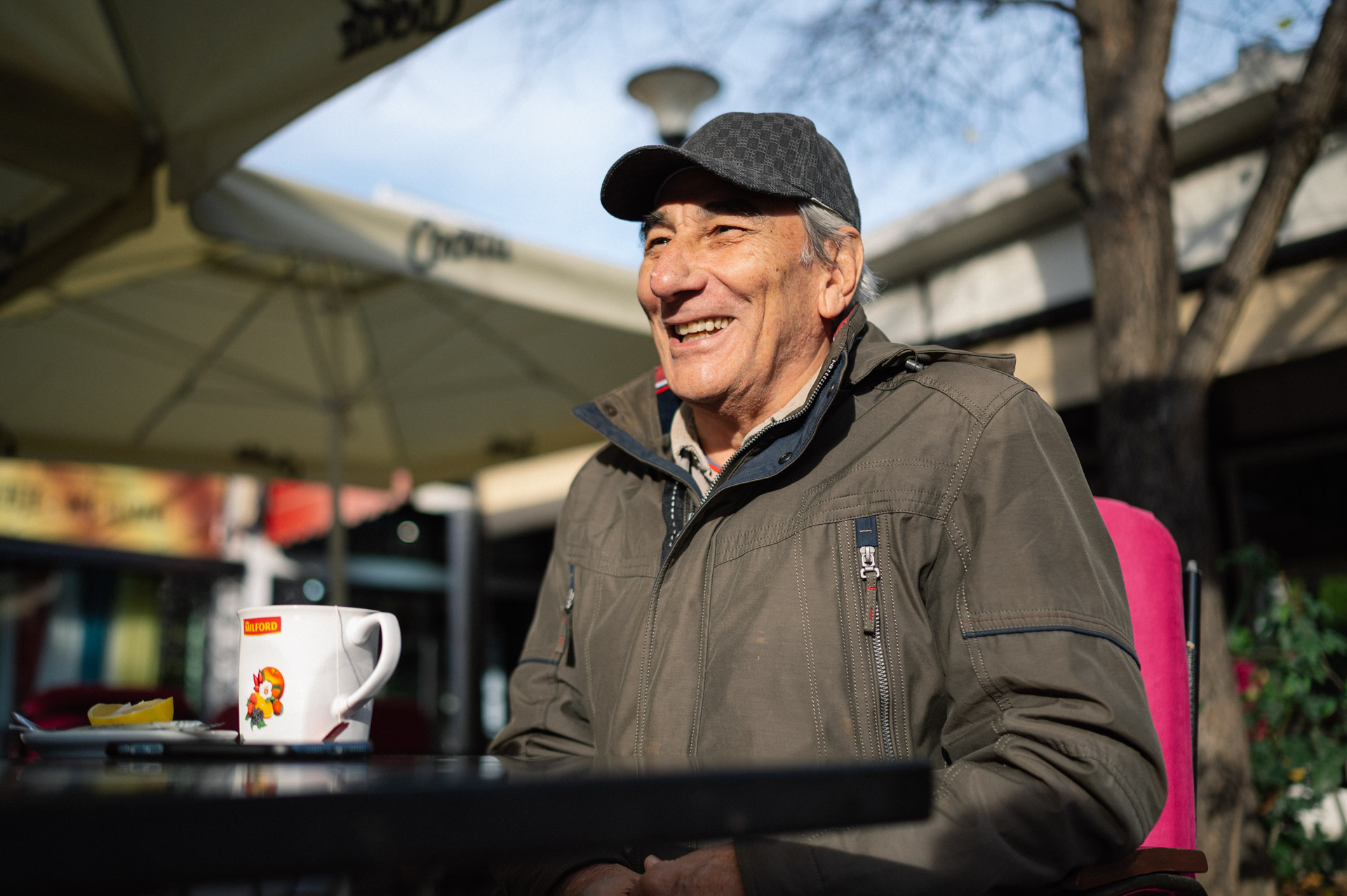 Photo: Vojislav Vujanic
Photo: Vojislav Vujanic
Do you have any plans going forward?
Last year I worked on “Kamiondzije” with the incredible Vlasta Velisavljevic. It was an off-set comedy. Even at his age, he’d take any opportunity to crack jokes. One time we were recording near Ub and during our breaks every passerby would greet me. Noticing it, Vlada commented “Are you from around here?”
“No, why?”
“I see everyone knows you!”
Another time I tore my pants on stage. I didn’t want to risk it being visible in the recording so I changed. But then my zipper broke on the second pants. When he saw that, Vlada of course had to comment “What can you do, you got over-excited!”
The latest thing I did was the conducting charades for a jazz festival in Nis. They wanted me to perform with them but I was terribly out of practice in terms of playing. If you don’t practice your instrument for a month it’s like you never played.
So I don’t have any plans right now. All my attention is on my grandchildren.




 8 ℃
8 ℃

